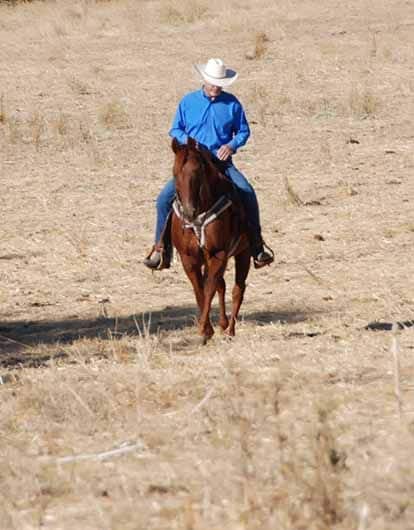Last week, we discussed the various roles that comprise a ranch-management team, in particular the distinction between a foreman and a manager for your property. Today, let’s take a look at what you need to consider once you’ve found a candidate who seems the ideal fit for managing your ranch.
First up, you need to get a clear sense of his qualifications and reputation in the field. A personal reputation includes what others say about him, his track record and his successes.
Talk to those with and for whom he has worked in the past. You will find those who have glowing admiration and those who will grind an ax over both spilled milk and real failures. Take the average. Unless real instances of incompetence or illegalities cannot be ignored, be realistic about the fact that perfection doesn’t exist, anywhere. Then, move directly to the next step.
Read more: What Is the Role of a Ranch Management Company?

Financial ability means the manager has the awareness and desire to establish and follow a simple budget process. He should show a ready interest in knowing the financial parameters within which he will be working and should talk candidly about his ability to succeed within those constraints. A good manager will bring many financial considerations to the table of which you might not already be aware. After all, it is his responsibility to anticipate the real and true costs of a successful operation. He should also accept your questions and input on how to avoid expense by prioritizing projects and outlays. This shows his understanding of your position and limitations. A good management plan should lay out the development of the ranch in one-, five- and ten-year increments.
Along with the ranch’s financial management, the manager’s approach to his personal finances should show a healthy sense of self-preservation, practicality and an appropriate consideration toward planning for the future. Keep in mind that a manager probably has had multiple employers and that some of those relationships did not go well—and not necessarily through his fault alone. The impact of parting between owners and managers can be more impactful to the manager. Give credit for this fact, when it seems reasonable.
You don’t need to be from Missouri to appreciate the expression, “Show Me!” The opportunity for demonstration during the evaluation process can be invaluable. Both the owner and manager candidate are evaluating one another. If a candidate does not ask (or insist) to spend time on the ranch during this process, you might disqualify them on this point alone. While the manager certainly works for the owner and must ride for the brand, he must also have a primary relationship to the land with which he is trusted. In this sense, his appraisal of the ranch is more important than any first impression you have of him. Your ranch manager is the primary advocate for your property. You might own it, but he cares for it. As steward, the manager will refer to your ranch in loving and critical terms. Allowing him to “ride out” on his own to have a good look pays dividends.
Indeed, he should have definite first opinions and a long list of questions. It is during this phase of the assessment process that owners should expect to find a rapport with the candidate. If the candidate’s assessments are compatible with the owner’s vision, this can be good. Yet, it is also possible that the manager candidate will report issues that the owner will be grateful to learn, even if this challenges aspects of his vision for the ranch. The important thing is how well manager and owner handle this process of discovery together.
Read more: The A to Z Glossary of Ranch Management
Join us next week for a look at what constitutes an appropriate compensation package for your prospective ranch manager.



